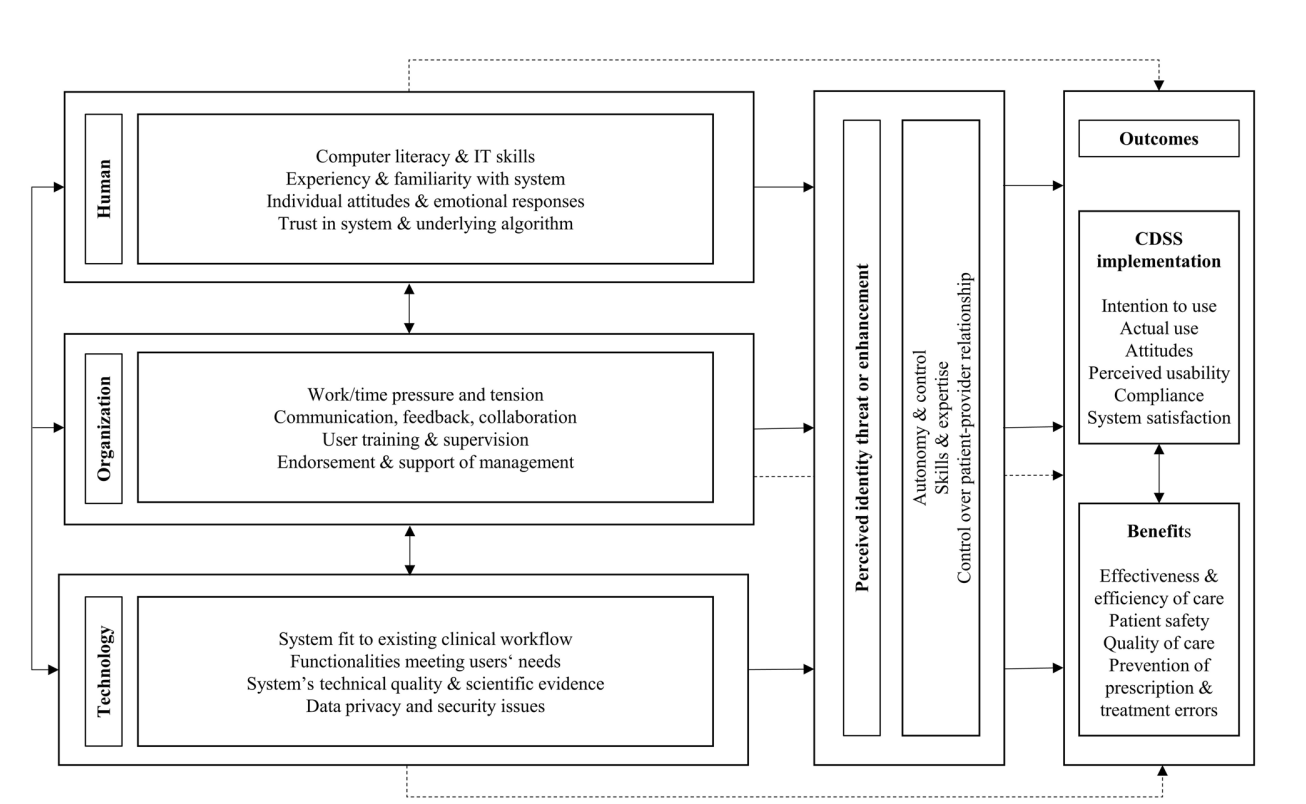Augmented Auditive Intelligence
The goal of the Augmented Auditory Intelligence (A2I) project is the user-centered development and evaluation of a socio-technical system for using artificial intelligence to analyze health data collected in and on the ear to improve audiological, occupational health, and cardiology care processes.
From the Blog
- 28 February 2024
The A2I project is being extended
Part of the nature of research is that the unexpected happens and the course of a research project is never completely predictable.
 12 April 2024
12 April 2024New A2I publication in "Implementation Science"
As part of the project, a new research paper entitled “Exploring the Role of Professional Identity in the Implementation of Clinical Decision Support Systems-A Narrative Review” was recently published in the journal Implementation Science. The study provides an in-depth look at the complex interplay between clinical decision support systems (CDSS) and the professional identity of healthcare professionals…
- 17 June 2024
Poster presentation at the Mobile Brain Imaging Conference (MoBI 2024) in Piran
First results of the A2I project in the field of Auditory Attention Decoding were presented by Lisa Straetmans-Oehme (University of Oldenburg) at the Mobile Brain Imaging Conference (MoBI 2024) in Piran (Slovenia)…
- 23 August 2024
Final meeting on 20-21 August 2024 in Kiel
The A2I team met on August 20-21, 2024 on the premises of the Christian-Albrechts-Universität zu Kiel for a final meeting, as the joint project is now coming to an end after 3.5 years.
Project Overview
Motivation
The dynamics of complex diseases and the effectiveness of interventions can often only be tracked through continuous monitoring of various vital signs. In this context, the aggregation of sensory vital data offers great potential for the use of artificial intelligence to support medical decision-making and to determine early warning signals that otherwise often remain hidden.
Goals and Approach
The goal of the project is the user-centered development of a wearable multi-sensor system that fuses additional sensors for measuring cardiovascular data, EEG sensors for measuring brain activity, and temperature and motion sensors on a networked hearing system and enables complex medical diagnoses and decisions based on AI technologies. Here, the ear offers an accurate location suitable for long-term measurements, where a sensor-equipped hearing system can be unobtrusively integrated into patients’ daily lives. Concepts for using the system to improve audiological, occupational medical and cardiological care processes are being developed and tested together with patients and medical professionals.
Innovations and Perspectives
The use of AI opens up new possibilities for the prognosis and diagnosis of health conditions, which can, however, radically change the doctor-patient relationship. The design of human-machine collaboration and the transparency of decision-making are crucial here.